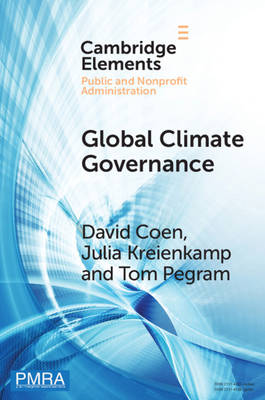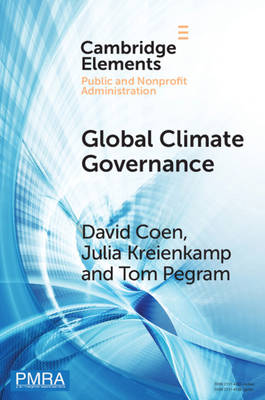
- Afhalen na 1 uur in een winkel met voorraad
- Gratis thuislevering in België vanaf € 30
- Ruim aanbod met 7 miljoen producten
- Afhalen na 1 uur in een winkel met voorraad
- Gratis thuislevering in België vanaf € 30
- Ruim aanbod met 7 miljoen producten
Zoeken
Omschrijving
Climate change is one of the most daunting global policy challenges facing the international community in the 21st century. This Element takes stock of the current state of the global climate change regime, illuminating scope for policymaking and mobilizing collective action through networked governance at all scales, from the sub-national to the highest global level of political assembly. It provides an unusually comprehensive snapshot of policymaking within the regime created by the United Nations Framework Convention on Climate Change (UNFCCC), bolstered by the 2015 Paris Agreement, as well as novel insight into how other formal and informal intergovernmental organizations relate to this regime, including a sophisticated EU policymaking and delivery apparatus, already dedicated to tackling climate change at the regional level. It further locates a highly diverse and numerous non-state actor constituency, from market actors to NGOs to city governors, all of whom have a crucial role to play.
Specificaties
Betrokkenen
- Auteur(s):
- Uitgeverij:
Inhoud
- Aantal bladzijden:
- 75
- Taal:
- Engels
- Reeks:
Eigenschappen
- Productcode (EAN):
- 9781108972895
- Verschijningsdatum:
- 17/12/2020
- Uitvoering:
- Paperback
- Formaat:
- Trade paperback (VS)
- Afmetingen:
- 152 mm x 229 mm
- Gewicht:
- 154 g

Alleen bij Standaard Boekhandel
+ 63 punten op je klantenkaart van Standaard Boekhandel
Beoordelingen
We publiceren alleen reviews die voldoen aan de voorwaarden voor reviews. Bekijk onze voorwaarden voor reviews.











